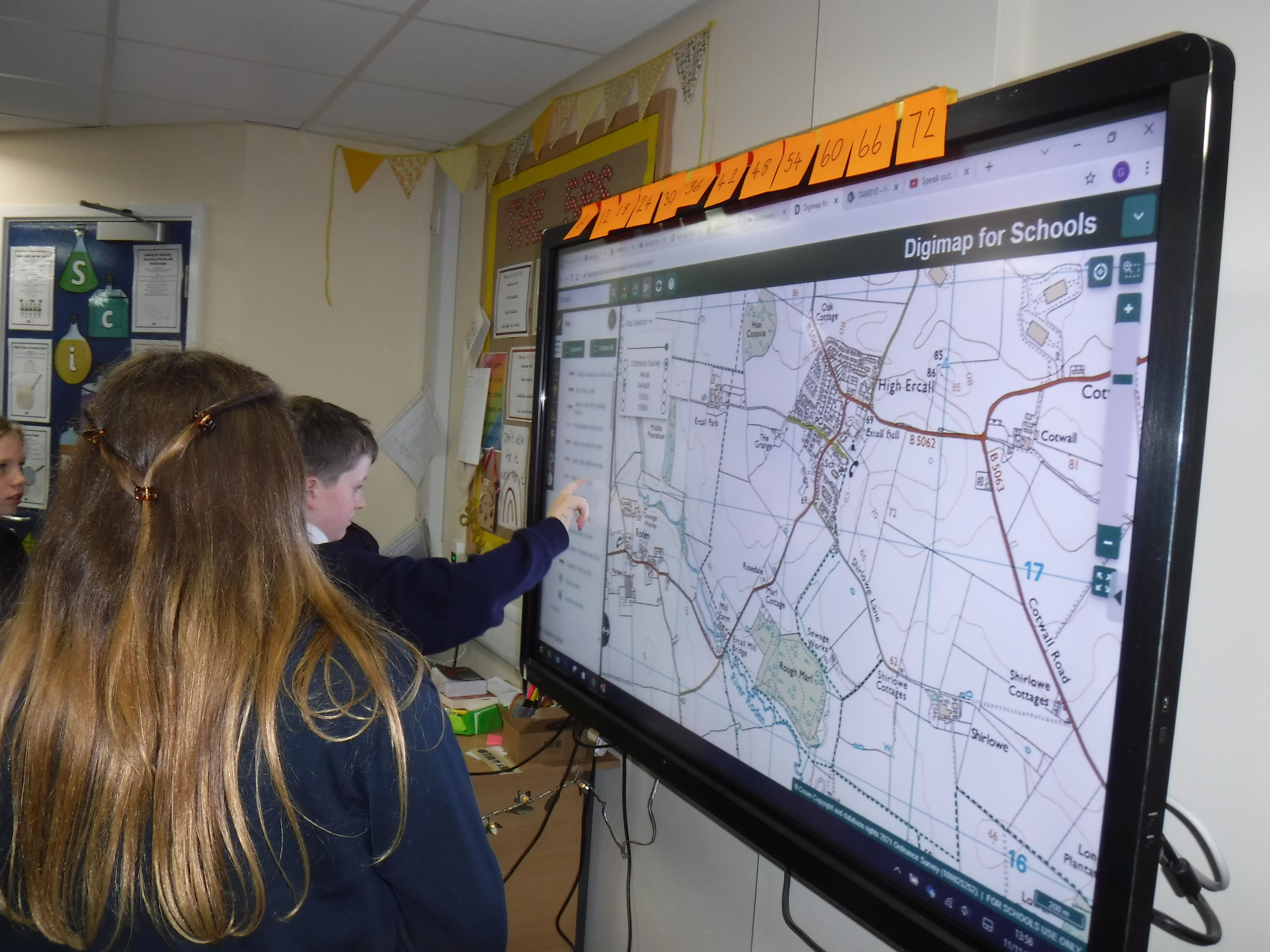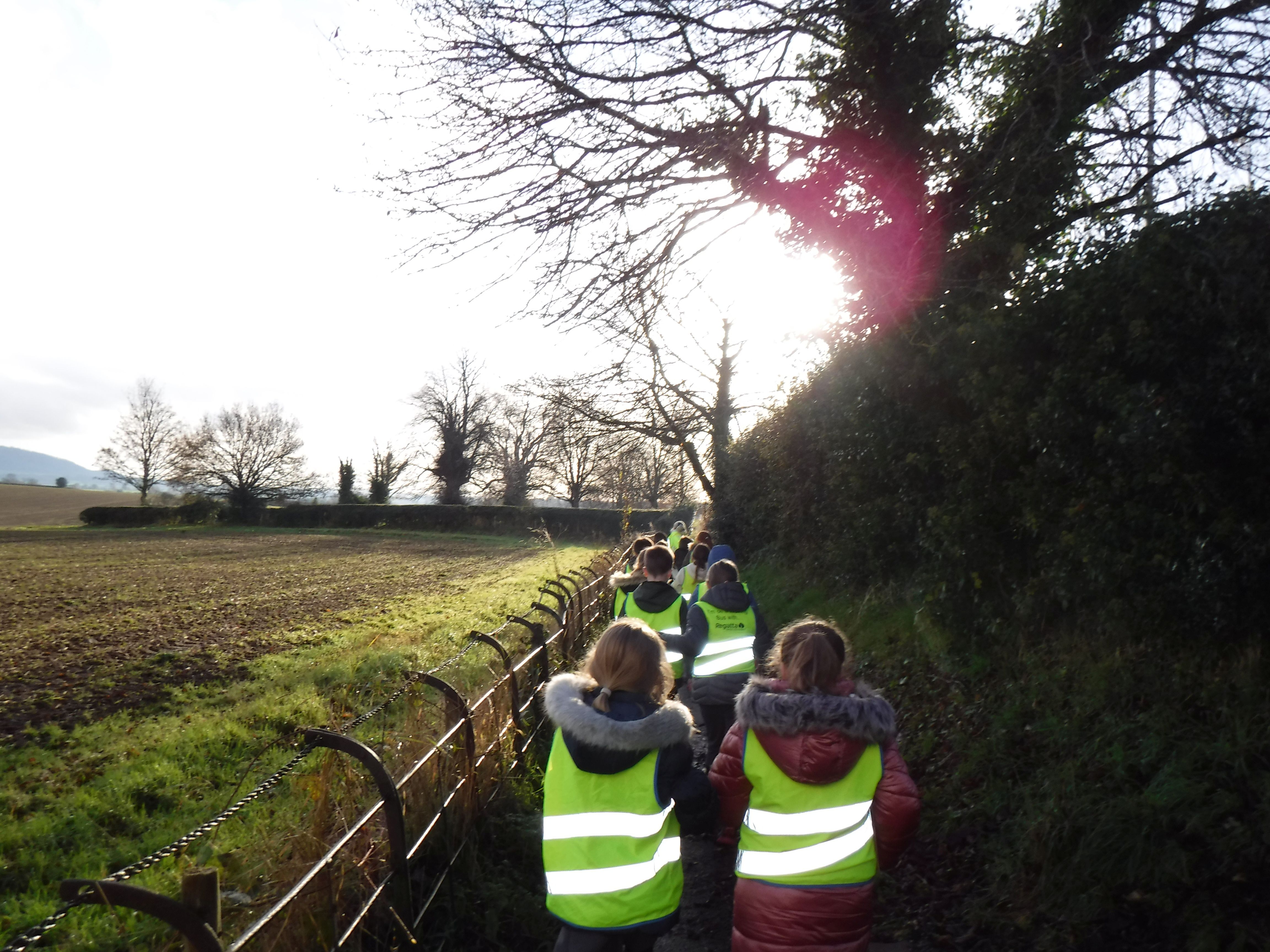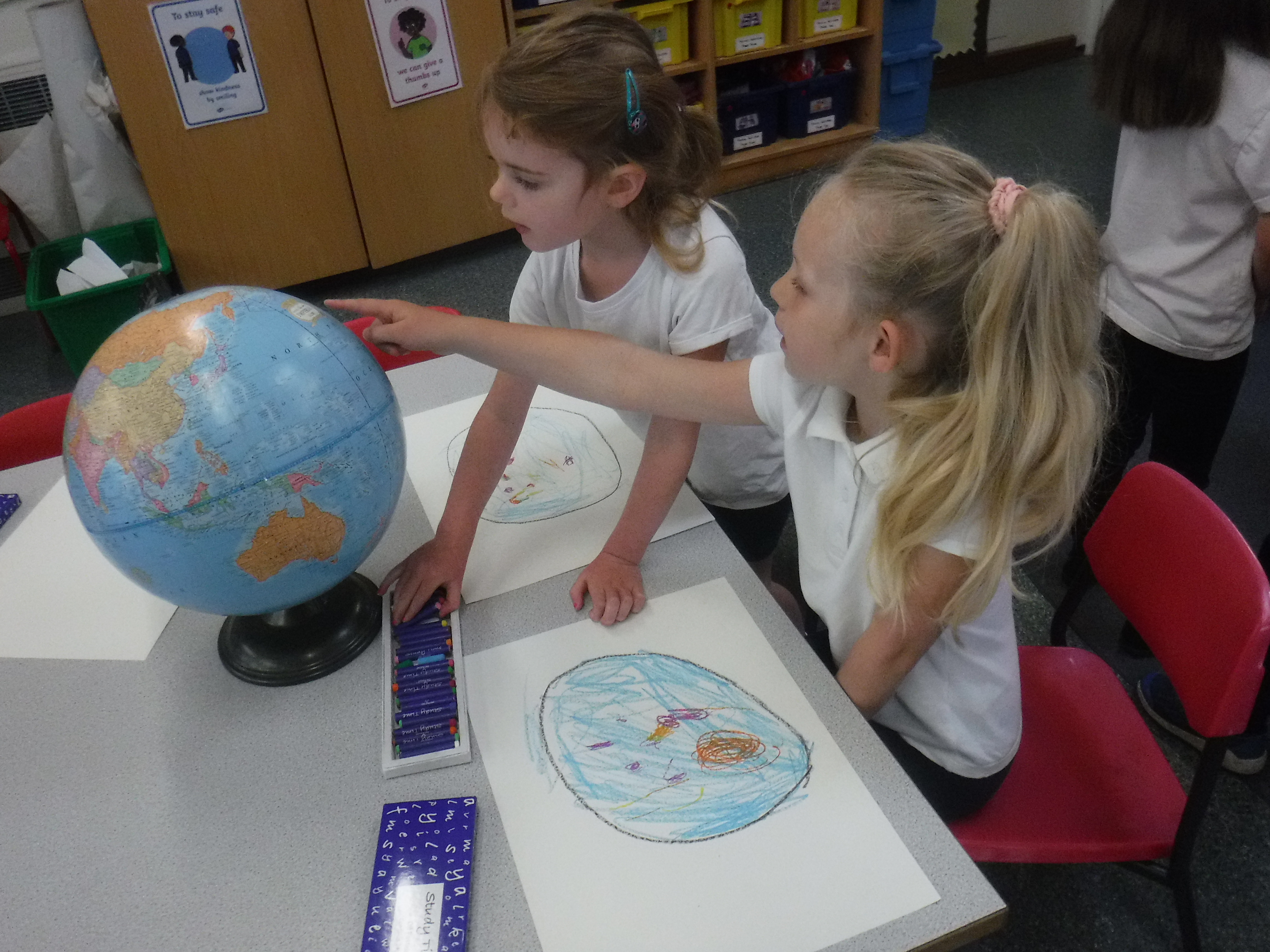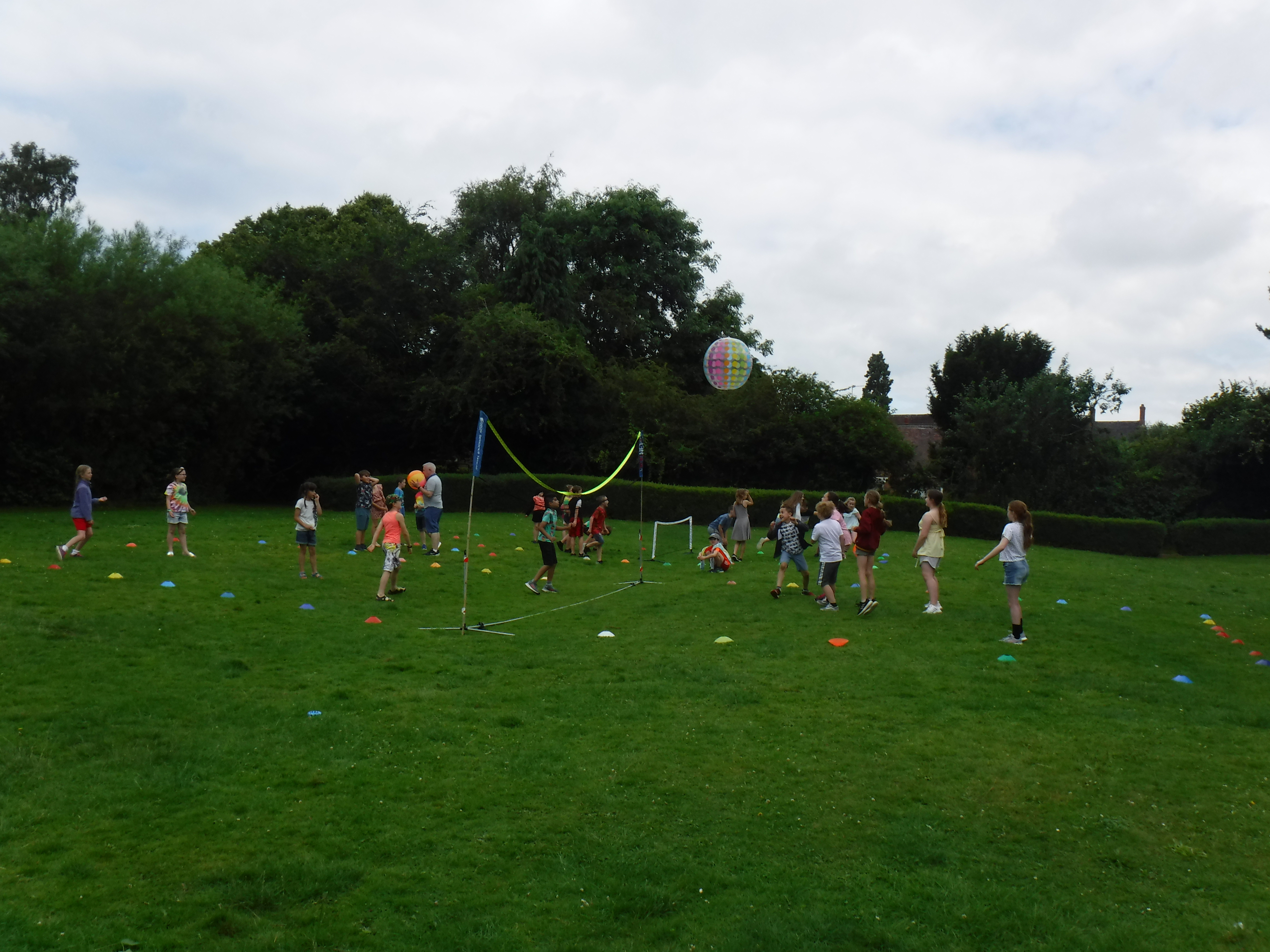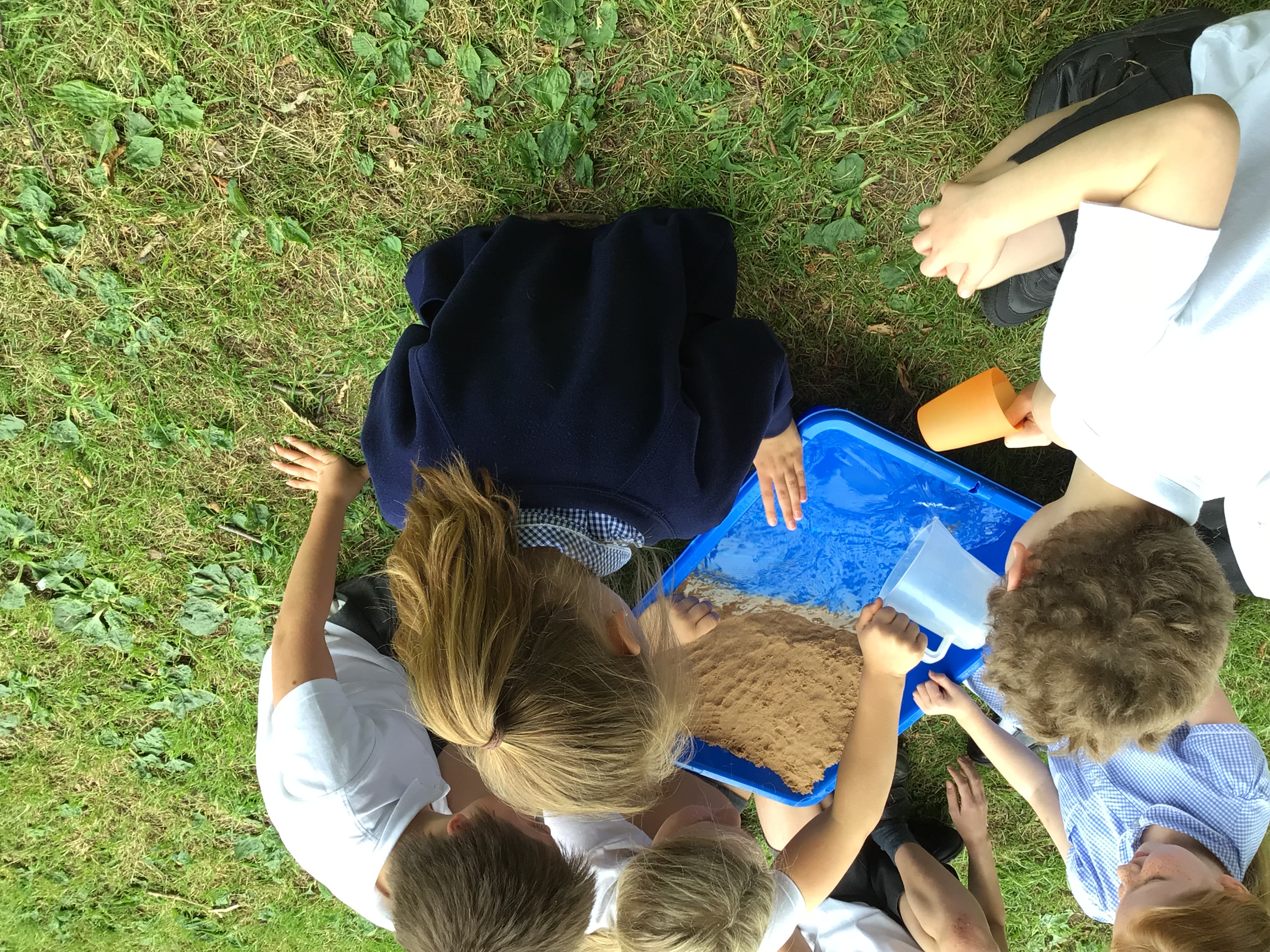Intent
What does geography look like at High Ercall?
The intent of our geography curriculum at High Ercall Primary School is to ensure pupils will understand where they are globally, nationally, and locally. Using their knowledge of the Earth, children will be able to relate a place’s location to its characteristics (e.g. distance from equator or altitude related to climate).
The intent of our geography curriculum is to deliver a curriculum which is accessible to all and that will maximise the outcomes for every child so that they know more, remember more and understand more ensuring they are fully prepared for KS3.
Our geography curriculum intentions are:
- To equip pupils with substantive knowledge about diverse societies, economics and cultures, together with a deep understanding of the Earth’s key physical and human processes
- To encourage pupils to gain coherent disciplinary knowledge to develop skills to make sense of the world in which we live and how it has evolved
- To stimulate curiosity and imagination and build upon the child’s ‘personal geography’ by developing geographical skills, understanding and knowledge through studying places and themes.
- Where possible and relevant, links will be made between geography and other curricular areas of study, key events nationally and locally, our individual student needs and prepare our students for KS3.
- To ensure pupils have appropriate subject knowledge, skills and understanding as set out in the EYFS and National Curriculum Geography Programmes of study.
- To fulfil the duties of the National Curriculum whereby schools must provide a balanced and broadly-based curriculum which promotes the spiritual, moral, cultural, mental and physical development of pupils and prepares them for the opportunities and responsibilities and experiences for later life.
Our curriculum has been built to include our key drivers:
We have built our curriculum to endorse the importance of outdoor learning by studying our local environment to build a curiosity allowing children to compare its physical and human features to places around the world. The children are encouraged to develop the school values (5R’s) when studying geography with a focus on a responsibility and children recognising their actions can influence the local environment and wider world. Teaching of geography equips pupils with knowledge about diverse places and people by celebrating the similarities and differences between ourselves and others, not only in our locality but across the world.
In our curriculum we have also considered the journey of a child through the school, so that our curriculum is progressive, building on prior learning, and regularly revisiting taught concepts. Each class has a two-year rolling programme which has been designed specifically to match the needs of our school and the structure of our classes, ensuring all children meet the full programme of study outlined in the National Curriculum.
Implementation
How is the curriculum for geography organised?
Children will be taught a range of knowledge and skills in both KS1 and KS2, focusing on locational knowledge, place knowledge, human and physical geography and geographical skills and fieldwork. Substantive knowledge will be built upon in meaningful progression with the use of key concepts running consistently throughout the curriculum, and using these to build upon prior knowledge. Our key concepts are: place, scale, interdependence, physical and human processes, environmental impact and cultural diversity. The curriculum is organised so local geography is taught in autumn term, the UK (KS1) and European geography (KS2) in spring and finally global geography is taught in summer.
To ensure coverage, depth and balance in the geography curriculum, the subject leader has provided a range of planning materials:
- Long term plan A 2-year rolling programme for each mixed-age class to ensure coverage and progression is achieved ensuring students are fully prepared for KS3. The long-term plan also details the substantive and disciplinary knowledge to be taught for each topic. Both substantive and disciplinary concepts are taught using a spiral curriculum, so they are constantly revisited throughout KS1 and KS2.
- Our substantive concepts are: place, scale, interdependence, physical and human processes, environmental impact and cultural diversity
- Our disciplinary concepts are: map skills, fieldwork, similarities and differences, research and enquiry, cause and consequence
- Medium term plans/knowledge organisers Details the substantive knowledge and sequence of lessons for each topic.
- Substantive concept map Shows which class and topics have covered our different concepts so teachers can use this document to explicitly teach the range of concepts by building upon prior learning and enable the children to make links between different topics within the geography curriculum.
- Progression document Details the progression of skills and knowledge we expect the children to make through their time at High Ercall. The progression document details progression from EYFS all the way through to Year 6 and is split into key concept knowledge, locational knowledge, place knowledge, human and physical knowledge, geographical skills and fieldwork.
- Vocabulary document Outlines subject specific vocabulary relating to all topics. This will be highlighted to the children at the beginning of lessons through mind maps and revisited through subsequent learning and knowledge quizzes.
- Fiction and non-fiction book maps A document that details a range of books that are topic specific to be used in geography lessons and in the class book area. Stories will be used throughout school, in order to embed concepts and to provide children with an understanding of the past. We understand the importance of stories and nursery rhymes in EYFS and how these can give children an insight into foundational geographical concepts for access to geography lessons in key stage 1.
Examples of these documents can be found in the related documents folder below.
How do we teach geography?
We teach geography in a variety of ways as outlined below:
- Use of sources Children will access atlases, textbooks, maps, digital technology and photographs to develop knowledge and understanding that is integral to their learning.
- Technology The use of ICT including web-based resources, VR goggles and interactive programs such as QR code trails enhances the students learning experience.
- Recap and retrieval Use of ‘quick quizzes and mind maps to ensure children are revisiting prior learning to enable them to build a schema of knowledge therefore enabling them to know more and remember more. The four principles of memory (Education Inspection Framework) are also taken into consideration: what content pupils need to know, what they pay attention to, avoiding overload, and allowing for practice.
- Fieldwork Enhancement – We recognise that children learn in a variety of ways, and so where appropriate, children will learn geography outside the classroom, with visits to historical sites and museums or experts visiting us in school. For example, KS1 visit a farm when they are learning about the local area and farms. Outdoor Learning opportunities with the curriculum - Teaching and Learning should plan for outdoor learning opportunities within geography lessons termly. This may be using the school grounds, local area or wider community to apply and explore their subject specific task. Children will access their local environment to get a hands-on experience in their learning.
- Cross curricular links Children learn how to cook cuisine from a range of cultures in DT linking to their topic in geography, understanding the history of the world can help make sense of it today and the use of ICT when researching and presenting information and highlighting links with PSHE and British Values
Approaches to teaching
A wide variety of teaching approaches are used in geography lessons to ensure children make good progress, and all learning styles are catered for. Class teachers ensure there is a good balance of whole class, group work and individual learning in geography lessons. We also aim to incorporate links to our speaking and listening curriculum with presentations by teachers, visitors and children; drama and role play; discussions and debates and themed days or weeks to inspire all learners.
EYFS:
Our curriculum is organised so children in reception meet the aims of EYFS framework. The early learning goals are taken from Understanding our world and are as follows:
- Describe their immediate environment using knowledge from observation, discussion, stories, non-fiction texts and maps.
- Explain some similarities and differences between life in this country and life in other countries, drawing on knowledge from stories, non-fiction texts and (when appropriate) maps.
- Know some similarities and differences between the natural world around them and contrasting environments, drawing on their experiences and what has been read in class.
- Understand some important processes and changes in the natural world around them, including the seasons.
How do we support our SEND learners?
We believe that all learners should primarily access the first quality teach and be immersed in class discussions during geography lessons. Therefore, SEND learners access the same learning as all other children but will be given further support, adapted outcomes and a tailored approach to suit each individual’s needs. Strategies used to support our SEND learners include:
- A pre-teach of topic specific vocabulary
- A reader to support when researching using a range of sources
- Print outs of work/presentations to scaffold with independent tasks
- More time allocated to process information or instructions broken down into manageable chunks.
This is monitored by our SENDCO - Sarah Roberts - and parents are fully engaged and involved.
Impact
All our staff, senior leaders and governors are involved in measuring the impact of our geography curriculum in differing ways. This is planned through the School Development Plan, using our annual monitoring cycle and termly development plan to map out monitoring and review over the year.
Gemma Lingham is our geography subject leader. There is a clear monitoring cycle in place which evaluates geography teaching and learning, outcomes, pupil and parent voice. These outcomes feed into action planning to continually evaluate and improve our teaching and learning in history.
Recent OFSTED inspection (March 2023), with a deep dive into geography, found that:
"Teachers understand leaders’ curriculum intentions. They use the curriculum to plan and deliver sequences of lessons that enable pupils to build on their prior learning. Teachers use assessment effectively to identify any gaps in what pupils know. For instance, they develop curriculum ‘mind maps’ for different subjects to check what pupils know and to help them remember more. Leaders carry out rigorous checks on how well the curriculum is being delivered. This helps them to identify what is going well and what additional support or guidance may be needed."
How do we review and assess learning in geography?
We assess children’s work in geography by making informal judgements as we observe them during lessons, using a mind map at the beginning of a lesson to recap prior learning and with the use of ‘quick quizzes’ for assessment of fact retrieval. We mark a piece of work once it has been completed and we comment, as necessary. An assessment is recorded in the pupils’ end of year report. Formative assessments are made against statutory end of key stage objectives.
Monitoring and evaluation could include:
- A review of learning in books
- Lesson observations
- Evaluation of the impact of staff professional development
- A review of medium-term planning
- Talking to pupils and parents about learning in geography
- Governor review trails to evaluate the impact of the curriculum - this could be reviewing the website or the curriculum offer, talking to staff and pupils.

